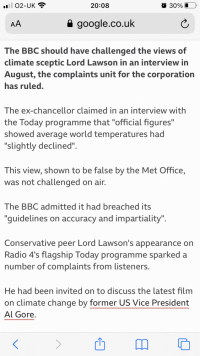Amarillo
Tom
Super Poster
VIP Member
This EU report suggests 80% electric car use will require about 15% of the UK's power going to electric cars.
Dominic Lawson the former “intelligence asset” and son of Nigel Lawson who I think was banned from the BBC airwaves for his climate sceptic campaigning.Last week two senior academics from Oxford University with extensive experience in an alternative fuelled future questioned where the electricity was too come from for an electric future. Today in the Sunday Times Dominic Lawson highlights the same question but covers a larger remit.
For those interested in an electricity demand for all cars to be electric do the following calculation and confirm my numbers yourself, or come up with something different. Happy for all, any, to disagree. Let's see your calculations.
DVLA says there are 40 milion cars.
Assume all will be electric
Max power out put of an electric car about 50kWhr
So max demand if all cars out running at fully power (unrealistic but wait for correction) is 40 million X 50 kWh
Divide by 1000 to get MW and by another 1000 to get GW. The new Hinckley Point should produce 3.8GW on completion. Divide the total GW by 3.8 to get the number of Hinckley Point equivalents needed. Now some corrections. Not all cars are used all the time, average usage is around 10%. Divide total Hinckley Points by 10. Second correction, not all cars are used at full power all the time. On cruise my 2018 Golf uses about 1/2 the max rated output. Assume this is true for electric vehicles so divide the 10% number of Hinckley Points by 2. You now have an estimate of the number of Hinckley Points needed just for the cars assuming the same vehicle density. You should get 100 Hinckley Points! If one is out by 50%that is 50 Hinckley Points - realistic or not. Have rounded up some of the numbers to make the calculation easy. If one adds in all the heat pumps to facilitate the removal of gas boilers - well not done that but it will be a lot bigger. Converting 50 or 100 Hinckley Points into wind, offshore or onshore is frightening. Convert to solar panels, I don't really want to go there!
The electric solutions is only possible if something like 75% of us give up personal transport! Have not added in the environmental scaring of Cobalt, Lithium and Neodymium mining - look these up plenty of information.
Am not against electric cars, they are a great drive and would cut inner city pollution dramatically. If they were realistic I would get one tomorrow.
Another way to do this is to take the total petrol and diesel used in the UK, convert to electricity equivalents, correct for inefficient ICE energy transfer to motive power to efficient electricity conversion. What do you get.


This EU report suggests 80% electric car use will require about 15% of the UK's power going to electric cars.
YDominic Lawson the former “intelligence asset” and son of Nigel Lawson who I think was banned from the BBC airwaves for his climate sceptic campaigning.
EDM is Early Day Motion btw. View attachment 81670
These are incredibly well known climate sceptics.
Are the Oxford Academics sponsored by anyone? Perhaps an oil company?
I know I haven’t answered your longer questions as I gave up after reading the people you were quoting.
View attachment 81671
I should say I’ve got nothing against Nigella Lawson in fact coincidentally I used her recipe when I cooked the kids pancakes this morning!
But I wouldn’t quote her in a discussion about global warming either.
The two Academics are not sponsored by oil. They published a letter in the Sunday Times last week. Professor Peter Dobson and Professor Peter Edwards.Dominic Lawson the former “intelligence asset” and son of Nigel Lawson who I think was banned from the BBC airwaves for his climate sceptic campaigning.
EDM is Early Day Motion btw. View attachment 81670
These are incredibly well known climate sceptics.
Are the Oxford Academics sponsored by anyone? Perhaps an oil company?
I know I haven’t answered your longer questions as I gave up after reading the people you were quoting.
View attachment 81671
I should say I’ve got nothing against Nigella Lawson in fact coincidentally I used her recipe when I cooked the kids pancakes this morning!
But I wouldn’t quote her in a discussion about global warming either.
Oxford University is facing criticism after the UK’s principal climate science denial group appointed a second professor to its ranks.Y
The two Academics are not sponsored by oil. They published a letter in the Sunday Times last week. Professor Peter Dobson and Professor Peter Edwards.
Dominic Lawson and Nigella are very different people, one a cook and the other a well known columnist in the Sunday Times who has been writing for years. I suggested reading Dominic not Nigella.
I was joking but apparently it’s being considered!@andyinluton I think you’ve just solved the range problem for EV’s. We just need a network of overhead cables and a pantograph on the roof of the vehicle, just like the old trolley buses

Add some track and they’ve got the makings of a train!
Dream on, they cannot electrify large parts of the rail system due to lack of trained engineers/cash.Add some track and they’ve got the makings of a train!
Dream on, they cannot electrify large parts of the rail system due to lack of trained engineers/cash.
The possibility of erecting such systems on the road network and of course having dual powered lorries in enough numbers to make it work is just delusional, probably.
Or they could just use the existing rail network and trains?
Overtaking each other could be a challenge, oh unless one has a diesel engine3
Batteries are heavy and expensive so removing/limiting them would help payload and cost. However, as said why not put the freight on the train as far as possible.Seems daft, just use batteries like Tesla semi
View attachment 82164
Urban camper? Does it come with a popup roof?Back on topic…
What’s mini planning?

THE MINI VISION URBANAUT.
Let #NEXTGen and its web series give you unique insights into innovations by the BMW Group, as well as the future of mobility – and beyond. Tune in and make sure you check back regularly for the latest product innovations, cutting-edge and entertaining storytelling.www.mini.com
Batteries could be the next big environmental issue. Extract from an article I read:Seems daft, just use batteries like Tesla semi
View attachment 82164
And don't forget the vast environmental pollution that comes with the mining and extraction of the rare earth metals needed for electric motors and generators. Most of this is China based as well. I would not be surprised if the world looks back in years to come and asks: was electrification a good thing or just moving the problem?Batteries could be the next big environmental issue. Extract from an article I read:
And now because of China’s EV dominance, that country is discovering a new and severe environmental problem. EV batteries are toxic and carry great power to pollute. Early on, the problem was less evident. These batteries last for 5 to 8 years so it took time before China needed to find ways to dispose of them safely. But in the last year, China had to get rid of some 200,000 tons of these things. The government expects that number to grow to 800,000 tons over the next four years, an annual growth rate of over 40%.
EV batteries contain heavy metals such as cobalt and nickel, neither of which break down in nature. They also contain manganese that can pollute soil and water as well as air. Only 500 micrograms of magnesium in a cubic meter of air will produce manganese poisoning in most people. As lithium batteries degrade, they produce hydrogen fluoride and other pollutants. China has already had to deal with a bout of manganese poisoning tied to battery disposal in Guangdong Province. To give a sense of levels of toxicity, one scientist involved in the Guangdong incident, Professor Wu Feng of the Beijing Institute of Technology explained that one “20-gram cell phone battery can pollute three standard swimming pools of water, and if abandoned on land, it can pollute one square kilometer for 50 years.”
I agree. The article specifically mentions "disposal". What does this mean?Batteries could be the next big environmental issue. Extract from an article I read:
And now because of China’s EV dominance, that country is discovering a new and severe environmental problem. EV batteries are toxic and carry great power to pollute. Early on, the problem was less evident. These batteries last for 5 to 8 years so it took time before China needed to find ways to dispose of them safely. But in the last year, China had to get rid of some 200,000 tons of these things. The government expects that number to grow to 800,000 tons over the next four years, an annual growth rate of over 40%.
EV batteries contain heavy metals such as cobalt and nickel, neither of which break down in nature. They also contain manganese that can pollute soil and water as well as air. Only 500 micrograms of magnesium in a cubic meter of air will produce manganese poisoning in most people. As lithium batteries degrade, they produce hydrogen fluoride and other pollutants. China has already had to deal with a bout of manganese poisoning tied to battery disposal in Guangdong Province. To give a sense of levels of toxicity, one scientist involved in the Guangdong incident, Professor Wu Feng of the Beijing Institute of Technology explained that one “20-gram cell phone battery can pollute three standard swimming pools of water, and if abandoned on land, it can pollute one square kilometer for 50 years.”

That range is more like itWith BMW’s experience of electric.
This could be an interesting car…

BMW i4 (G26): prices, models, range, charging & design | BMW.UK
The all-new BMW i4 : Range, innovative features and emission-free driving dynamics. Get exclusive pre-information on the first-ever electric Gran Coupé.www.bmw.co.uk

I want one of these to sit next to our Cali.

Citroen Ami Review 2023 | Top Gear
Yes, it’s a rubbish ‘car’... because it isn’t one. But it is fun to use and an entirely loveable objectwww.topgear.com
What’s the NCAP rating…

You getting a matching pair or finding something different for your other foot?I want one of these to sit next to our Cali.

Citroen Ami Review 2023 | Top Gear
Yes, it’s a rubbish ‘car’... because it isn’t one. But it is fun to use and an entirely loveable objectwww.topgear.com
That needs a “knee cap rating” in case it bumps into pedestriansWhat’s the NCAP rating…

The VW California Club is the worlds largest resource for all owners and enthusiasts of VW California campervans.

